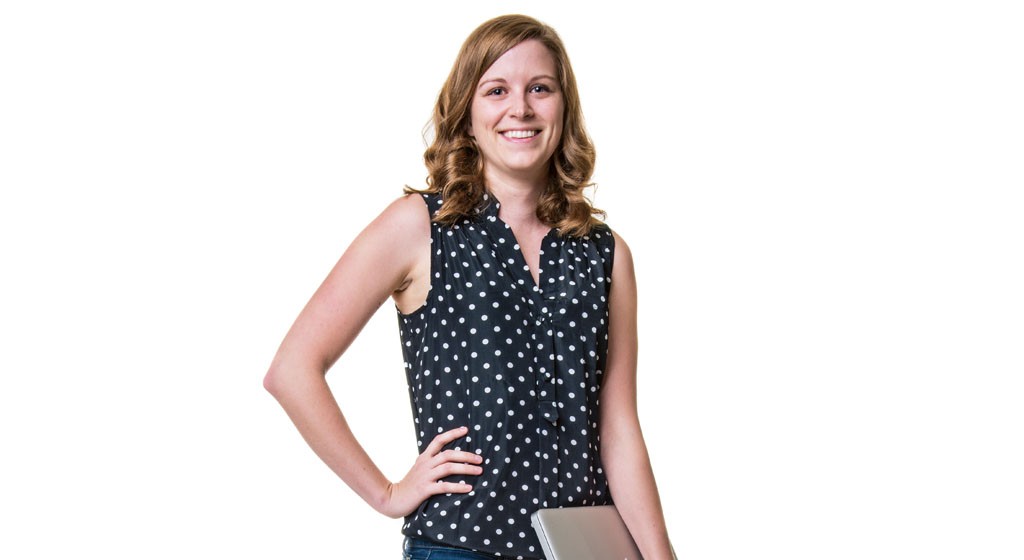How I paid off $37,987 of debt
Jordann Brown, 26, of Halifax, N.S., was able to eliminate thousands in debt in 2 years. Here's how
Advertisement
Jordann Brown, 26, of Halifax, N.S., was able to eliminate thousands in debt in 2 years. Here's how

In 2011, I had just completed my marketing degree from Dalhousie University and was driving home from Halifax to New Brunswick when disaster struck. I was in a traffic accident that totalled my car. Sitting in the hospital, in the middle of nowhere, without a car or even a penny to my name to rent a room, I realized: I was in debt. As a student in the loan grace period, I realized I didn’t even know how much I owed and the accident helped me see that I didn’t even have an emergency fund. As I sat in that hospital emergency room I made a vow: To pay off all my debt as quickly as possible and never be short of money again.
A few weeks later, after finally making it home, I tallied up all my debt: I owed $37,987. The number literally took my breath away. Immediately, I started to search for help with my outstanding post-secondary government loans. I found that New Brunswick was one of the few provinces to offer a student rebate. Known as the Timely Completion Benefit, it’s meant to help reduce the burden of student loans for new graduates. The criteria to qualify was that both myself and my student loans had to be from New Brunswick. I also had to have graduated on time—for me that meant graduating in four years or less. By applying for this rebate, I was able to reduce my outstanding debt by more than $10,000.
Determined to pay off the remaining $26,000 owed over the next four years, my boyfriend Rob (now my husband) and I decided to leave Halifax (where the cost of living was high) and start our new life in the small town of Petitcodiac, N.B. The effect on our budget was immediate. For instance, in Halifax we were paying $1,000 each month in rent for a one bedroom apartment; in Petitcodiac, we were able to rent a small 400-square-foot cottage for just $350 a month. Transit costs in our four-year-old Volkswagen Golf also declined, to just $200 each month, making our monthly bills quite manageable. For work, I landed a job as a marketing manager for a small company in town earning $38,000 annually. Rob started his own landscaping business, earning about $12,000 a year.
For the four years we lived in Petitcodiac, we continued to cut costs while increasing our weekly debt repayments. At first we put $50 a week towards paying off our debt. We increased that to $70 a week and, within a couple of months, we increased it again to $90 a week. To save money, I also stopped going to yoga and getting haircuts. We even made our own wine. We didn’t stop there. To increase my weekly income, I started freelance writing for a number of websites—small pieces on how to have a minimalist wardrobe and how not to spend too much money at Christmas. Then I started writing about credit cards. That proved more lucrative, adding $7,000 annually to our household income.
By taking all these measures, Rob and I were able to pay off the entire debt in 24 months, instead of the four years we had projected. Once debt-free, we started to build an emergency fund. Within the next two years, we’d saved $10,000 in our rainy day fund. We also put aside $7,000 in a retirement fund. It was then that we decided we’d really missed living in a larger urban centre and we decided to move back to Halifax. Before leaving, we saved up and set aside $5,600 for first and last month’s rent plus damage deposit for our new apartment.
These days, I work remotely from our Halifax apartment, earning $46,800 a year, while Rob earns about $40,000 as a warehouse technician. We love to run and bike and hang out with our dog. Working from home and not having a daily commute is awesome. As a result of my experience, I strongly urge anyone with student debt to look into and apply for debt relief. It’s a quick win. Then, decide to live on a budget and use your savings to pay down your debt. To keep you motivated, calculate what your debt-free day is and use it to keep you on track to meeting your goal. Of course, it helps if you and your partner are on the same page. This has made all the difference to our debt—and our happy relationship.
As told to Julie Cazzin
Tell MoneySense how you accomplished your financial goal. Email [email protected]
Share this article Share on Facebook Share on Twitter Share on Linkedin Share on Reddit Share on Email